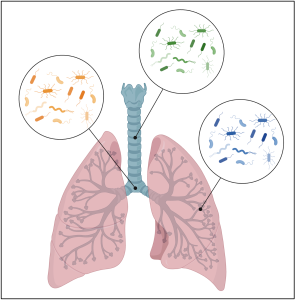
⎯⎯⎯⎯⎯⎯⎯⎯⎯⎯⎯⎯⎯⎯⎯⎯⎯⎯⎯⎯⎯⎯⎯⎯⎯⎯⎯⎯⎯⎯⎯⎯⎯⎯⎯⎯⎯⎯⎯⎯⎯⎯⎯⎯
About us
Welcome to the Miller lab! We specialize in pulmonary immunology and toxicology. Our research is focused on investigating the impacts of environmental exposures on pulmonary and immune system development during the first year of life. We use animal models and cell culture methods to address questions related to mucosal immune mechanisms in pediatric populations, with an emphasis on understanding the susceptibility of children to lung disease. The goal of our work is to determine how the environment influences the course of respiratory health across the lifespan.
The Miller lab extensively utilizes a nonhuman primate model (NHP) for its study of the lung. NHPs are much more closely related to humans than conventional rodent models. They are much more similar anatomically, developmentally, physiologically, reproductively, and immunologically. Thus, NHPs are an ideal translational animal model to better understand human health and disease.
The Miller Lab is a member of both the Cardiorespiratory Diseases Unit and Inhalation Exposure Core, which are located at the California National Primate Research Center at the University of California Davis. We are affiliated with the UC Davis school of Veterinary Medicine.

The Miller lab, September 2024
Lung microbiome

Throughout mammalian bodies, bacterial symbionts coexist with endogenous cells. The lung is no different, supporting a vast array of beneficial bacteria. What implications does this have for human health and disease?
[ Read more ]
Smoke exposure

Cigarette and E-cigarettes are widely used recreational substances. California's surge in wildfires has exposed the general public to PM2.5-based smoke. How do these impact our health and general development?
[ Read more ]
Respiratory immunity

The lung is a large and complex organ, often acting as the first line of defense in pathogenesis. By better understanding its relation to our immune system, can we better understand how improve our general health?
[ Read more ]
Icons created using BioRender
Image of rhesus monkeys credit Kathy West, CNPRC (2013)

